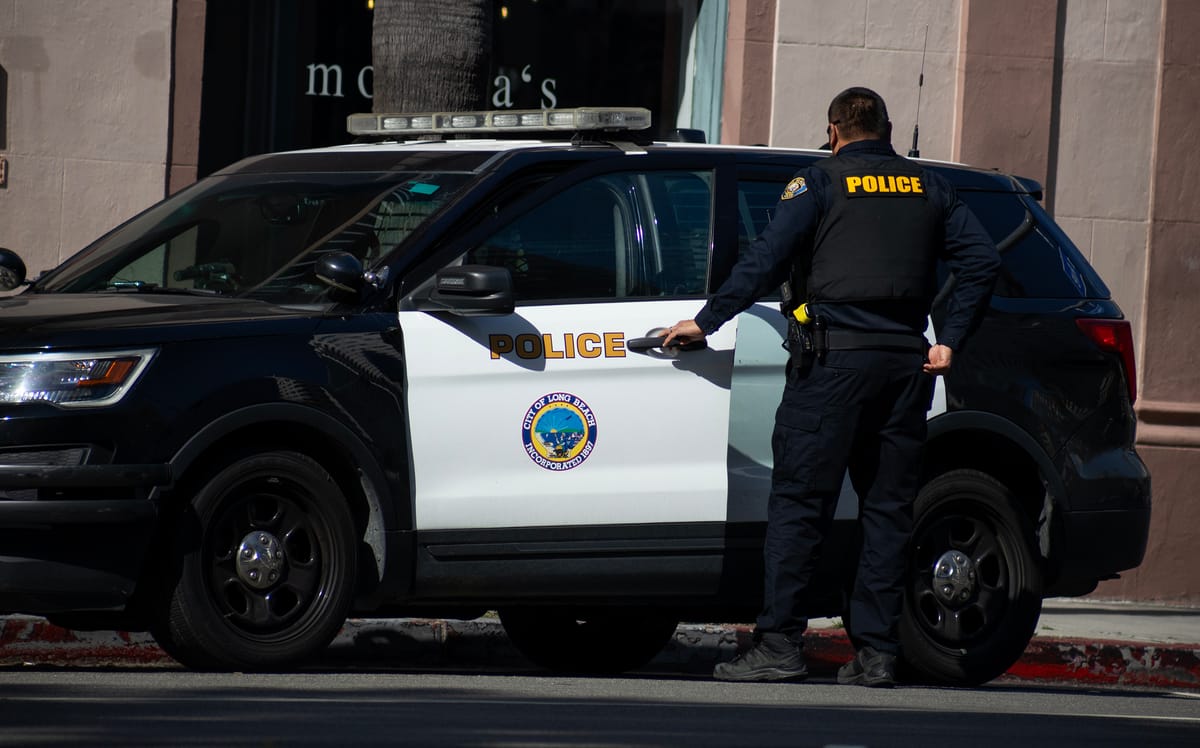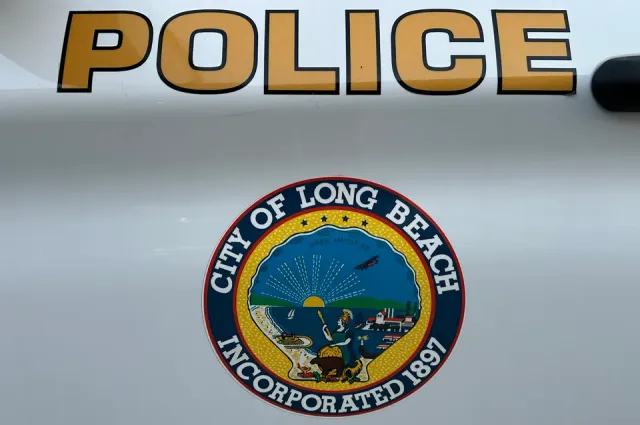Critically Speaking: Democrats are split on Proposition 36
But the divisive measure that could increase penalties for retail theft and drug charges will be decided by voters in November.

If you’ve ever noticed when you vote for offices in Long Beach there is never (D) or an (R) next to a candidate's name. On a few occasions when I’ve tried to ask questions of elected officials about their political ties I’ve been kindly reminded that they hold “non-partisan” positions.
Anyone who’s lived here long enough to go through an election cycle would question the truth in that. Mailboxes during election years often resemble a Thanksgiving turkey, but instead of cranberries and breadcrumbs spilling out of it, it’s endorsements from the local Democratic or Republican groups.
The “non-partisan” positions in Long Beach have become increasingly partisan. Note the cancelation of this week’s City Council meeting smack dab in the middle of the budget season because of a lack of quorum as some council members, as well as Mayor Rex Richardson, were in Chicago for the Democratic National Convention.
So, it’s no surprise that in a city where Democrats dominate the City Council, a vote on whether to support a statewide proposition that would change some key tenets of Proposition 47, something that has roiled the state’s Democrats, has failed to make it to the City Council for a vote.
On Aug. 6, a council committee agreed to send the issue along with a request to support Proposition 4, a statewide bond measure that could send funding to Long Beach for environmental projects, to the council for a vote.
A week later the council voted to approve Prop. 4. But Prop. 36 never made it onto the council’s agenda.
The broad strokes of Prop. 36 is that it would reform portions of Prop. 47, which law enforcement agencies (and people on Nextdoor) have blamed for the retail theft and public drug use that have crept into nightly newscasts and social media feeds.
Prop. 47 reduced some thefts (under $950) and drug possession charges to misdemeanors, regardless of how many times a person was cited.
If voters approve Prop. 36, a person who commits property theft for a third time, regardless of the value, could be charged with a felony. Similarly, persons with at least two drug offenses could receive a “treatment-mandate felony,” meaning they’d have to go into a rehab program to avoid the felony charge.
Conservative voters, Republican lawmakers and some big city mayors have come out in support of Prop. 36 but other Democrats, notably Gov. Gavin Newsom and progressive groups in favor of putting fewer people behind bars have opposed it.
The issue has split the state’s progressives and other Democrats because of the implications it could have for criminal justice reform.
As you might remember, Prop 47 has been blamed for a variety of things over the past decade and some fear Prop. 36 will be a catalyst for returning to an era of locking people up for minor offenses, something that could be incredibly expensive.
According to a nonpartisan analysis of the bill, it could cost the state upward of the “low hundreds of millions” and also reduce the amount the state would have to spend on mental health and drug treatment, dropout prevention and victim services. Prop. 47 required the savings from not putting people in jail to be spent on those services.
It’s a tough position for local elected leaders who are the first to get the call from business owners when their storefront’s windows are shattered or when vandalism drives customers away.
Last week, Richardson told Politico that he'd “likely take a position between now and November,” noting that crime has started to come down from the pandemic highs.
But now that Prop. 36 is on the ballot, the real decision-makers in this situation will be you; the voters.
Recent polling suggests it has the support to be adopted in November with 56% of likely voters supporting Prop. 36 and just 23% saying they’d oppose it. It’s one of 10 statewide measures that you’ll have a hand in deciding this fall.
What happened this week
A part of Pine Avenue will be closed for the next two weeks as a series of community events are scheduled for the Downtown area with hopes of driving more pedestrians to the area to support local businesses. The first event, “The Big Gay Pine Avenue Takeover,” is scheduled for Saturday afternoon. Other events scheduled for the next two weeks include a roller disco, a “mini burning man” and a Hispanic Heritage Month celebration to close out the temporary shutdown of Pine Avenue between Broadway and Third Street. This is not the first time that a part of Pine in Downtown has been closed to activate the area. City leaders closed a larger portion of Pine during the pandemic to allow restaurants and bars to utilize the open air to bring in more customers and advocates have pushed for the street closures to return. In a release earlier this week, Downtown Councilmember Mary Zendejas’s office said that the upcoming closure could be a test run for what’s to come during the 2028 Olympics.
Something to keep an eye on
Next week the city will finally break ground on a replacement for Fire Station 9, which will be located near the Los Cerritos neighborhood. The station’s workers have been displaced since 2019 when the city found recurring mold in the old station, forcing the apparatus to work out of a temporary station for the past few years as plans were completed to build a new station. The new station, located at 4101 Long Beach Boulevard, will bring the fire personnel back to its original service area in Los Cerritos, which should reduce response times in the future. The new station is expected to cost in excess of $20 million but will allow the station to use more modern equipment, and perhaps most importantly, prevent fire personnel from having to work in potentially dangerous conditions while at the firehouse. As for the old Station 9, the city agreed earlier this year to sell the property to Gemmae Bake Shop, which intends to expand its operations and use the old station as a production facility.

We need your support.
Subcribe to the Watchdog today.
The Long Beach Watchdog is owned by journalists, and paid for by readers like you. If independent, local reporting like the story you just read is important to you, support our work by becoming a subscriber.





